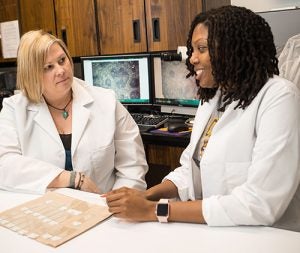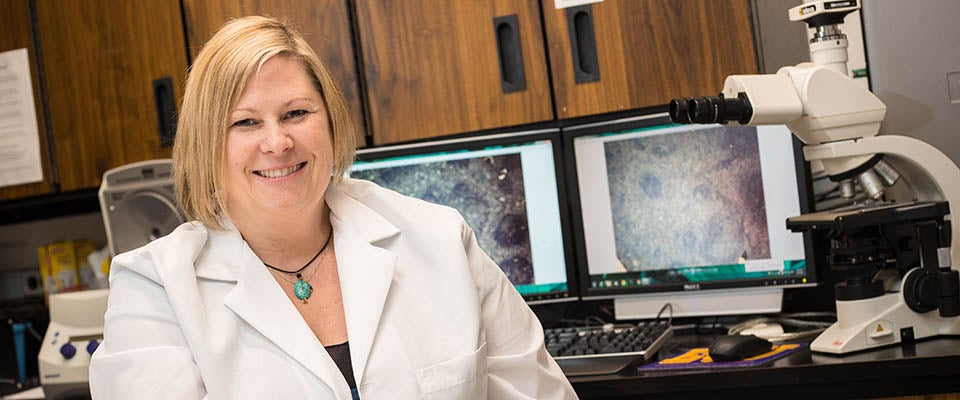HARMFUL CHEMICALS
ECU immunotoxicity expert encourages regulation of chemicals in everyday products
An international group of researchers including East Carolina University’s Brody School of Medicine immunotoxicity expert Dr. Jamie DeWitt, co-authored a feature article in the most recent edition of the journal Environmental Science & Technology calling for regulation of an entire class of highly fluorinated chemicals.
Highly fluorinated chemicals, often referred to as per- and polyfluoroalkyl substances or PFASs, are synthetic compounds that have been produced for decades. They are particularly valuable in certain industrial and consumer applications including aqueous film forming foams. These foams are used for putting out high intensity fires and are used by military personnel and at airports where the risk of high-intensity fires can be high.
PFASs also are used to make items water-repellent, stain-resistant and nonstick. They can be found in products such as furniture, cosmetics, clothing, cookware and food packaging.

DeWitt, left, works with doctoral student Jacqueline Meadows.
“Certainly, the compounds are important in keeping firefighters safe as they do their jobs, but are they necessary in keeping our cupcakes from sticking to the pan or for keeping our carpeting stain-free given the potential for their exposure to induce health effects? I think that if consumers are aware of their potential toxicity, they may want PFAS-free options for their products,” said DeWitt.
The four researchers from the United States, Sweden and Switzerland explain that this class of chemicals does not break down and can remain in the environment for thousands of years. Remnants of these compounds have high detection levels in surface water.
A recent study lists North Carolina as a state with a high frequency of PFASs detected in water supplies with eastern North Carolina containing a significant proportion of the detections. Only California and New Jersey ranked higher than North Carolina.
“It is likely that both industrial and military activities contributed to this type of water contamination,” said DeWitt.
Exposure to the most well-studied of these substances has been linked to kidney and testicular cancer, thyroid problems, elevated cholesterol, decreased fertility, changes in hormone functioning in adults and adverse developmental effects and decreased immune response in children.
“Companies like IKEA are putting consumer safety first and are removing these compounds from their textiles. PFAS-free is an option and consumers should be given the knowledge to make a decision that is the best for their homes, their families, and their lives,” said DeWitt.
Sources:
-
- A Never-Ending Story of Per- and Polyfluoroalkyl Substances (PFASs)?, Environmental Science & Technology Journal,http://pubs.acs.org/doi/abs/10.1021/acs.est.6b04806
- Detection of poly- and perfluoroalkyl substances (PFAS) in U.S. drinking water linked to industrial sites, military fire training areas, and wastewater treatment plants, ES&T Letters, 2016, 3:344-350), Hu et al.https://www.ncbi.nlm.nih.gov/pmc/articles/PMC5062567/
